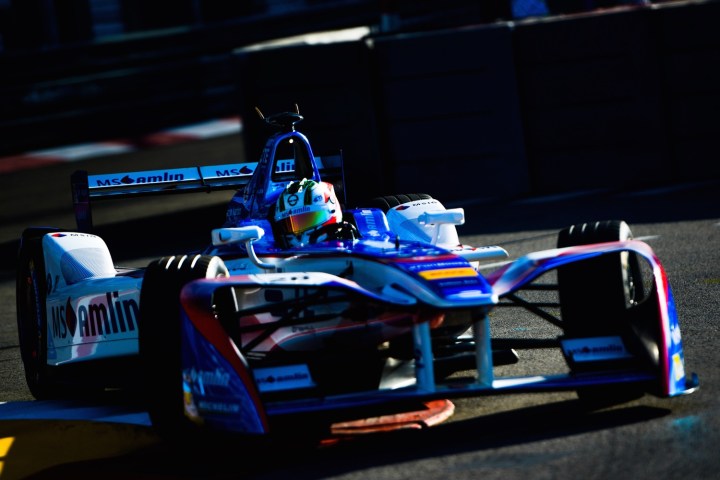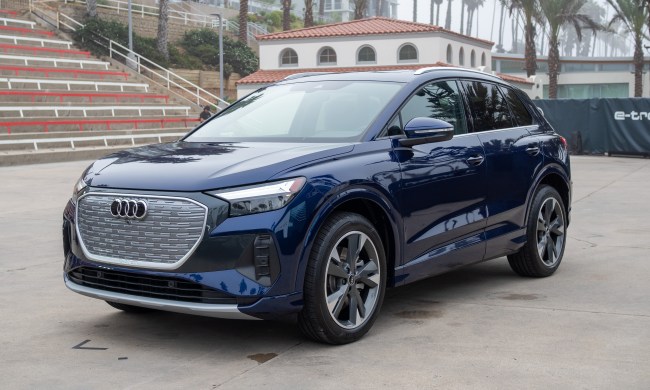
BMW confirmed it will enter Formula E as a manufacturer for the series’ fifth season, which kicks off in 2018 and runs through mid-2019. The German automaker already has a relationship with the Andretti Autosport team, but will step up its commitment significantly. Among other things, BMW will supply its own powertrains to the team.
“This project is thoroughly driven by technology. We are using Formula E as a development laboratory, operating under unique conditions that prevail in motor racing,” said BMW board member Klaus Frohlich. “The borders between production and motor racing development are more blurred at BMW i Motorsport than in any other project.”
BMW’s announcement came shortly after Audi confirmed that it would launch its own Formula E team next season. Like BMW, Audi plans to convert an existing partnership with an independent team into a full-on factory effort. A currently has a technical partnership with the Abt Schaeffler team, and will take that team’s spot on the gird when Formula E’s fourth season kicks off in Hong Kong in December.
Formula E has attracted a lot of attention from automakers in a relatively short period of time. Jaguar, Mahindra, Renault, and Citroen’s DS sub-brand all have their own teams. So do startups Faraday Future, NextEV, and Venturi. Mercedes-Benz may enter the series as well. In addition to its partnership with Andretti Autosport, BMW currently supplies the pace car and various support vehicles for Formula E.
BMW will plunge headfirst into Formula E just as the series implements major rule changes, aimed at improving the quality of the racing. These changes include larger battery packs that can hold enough charge to last a whole race, eliminating the current mid-race car changes. All teams will continue to use the same chassis, but it will be a sleeker new design.
Alongside its Formula E entry, BMW will race at the 24 Hours of Le Mans in 2018, marking its first appearance at the legendary French competition in seven years. BMW will race in the GTE class for production-based cars, although it has not disclosed which one of its models it plans to race.


